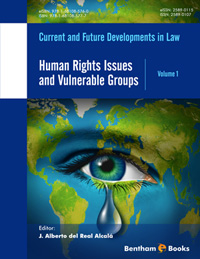Abstract
The idea of capacity is one of the main references of the ethical and legal discourse, and is used to define human beings as persons. The idea of the subject or moral agent, the subject of law, the notion of human dignity and the notion of the self in which both are founded, is based on the idea of capacity. The Convention on the Rights of Persons with Disabilities, approved on December 13, 2006 is a breaking point in the history of the treatment of disability, which now must be seen from the view of human rights. Thus, incorporating this regulatory instrument to our legal system requires a series of reforms, some of them of great importance. The Convention recognizes that persons with disabilities enjoy legal capacity on an equal basis, which implies a fundamental change in the legal treatment of disability. This is a change that can have very important consequences. But this requires changing and rethinking some assumptions, concepts and institutions that exceed the legal field. Indeed, some of these changes go beyond the legal projecting onto the contemporary ethical discourse.
Keywords: Capacity, Disability, Human rights, Non-discrimination.













